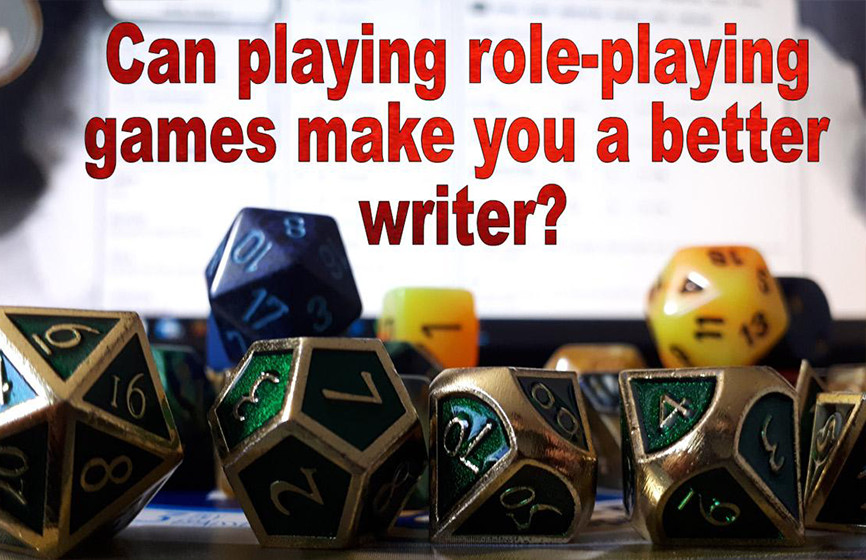
I have been a storyteller ever since I was young. While writing and storytelling complement each other, they are separate skills. A good writer can paint a picture with words so that others can visualize what they are writing about, whether it is a baseball game or something as simple as a meal. A good storyteller understands how to craft a story that captures an audience’s attention. They understand how to use commonalities to get the audience to relate and unravel their story so that they reveal enough to keep the audience interested but not give too much away until the climactic end. They connect threads within the story that may seem inconsequential but become relevant later so that the audience has those ah-ha moments, like the broken step on a staircase that becomes important later in the story. A good story stays with a person long after it is told.

Before there was high-definition TV, video games, and the internet, there were storytellers, and the stories they told were passed on to future generations orally. I sometimes honor that oral tradition by telling an old folktale called Wicked Jack and the Devil. I don’t read it but rather tell it from memory, and even though it may be told a little differently each time, it doesn’t matter. What matters is the connection I make with the audience. When I see their eyes widen at the surprising part or see their smile when the story amuses them, I know I have hit my mark and made a connection with them.
As a writer, I hope to make that kind of connection with my readers, but other than reviews, we never really know if we are successful. Nothing compares to telling a story to a live audience, and that is essentially what roleplaying games do.

Like many people from my generation, I was a closet nerd. I would get together with my fellow adventures, and we would play D&D into the wee hours of the night. Of course, we would have to do it in secret because if my fanatically religious mom discovered us playing, she would burn our books and liken it to devil worship. Which is ridiculous.
You may wonder how playing roleplaying games made me a better storyteller and writer. First, I didn’t buy premade modules; I wrote my own. So, the others were literally playing within my story. As we played, I could see their reactions to my story. I saw what piqued their interest and what bored them. I learned how to pace the gameplay as a writer would pace their stories. I could see in real-time the effects my story had on them. I found the information I gleaned from running campaigns to be valuable in my development as a storyteller, and I found my ability to tell great stories valuable as a writer.

However, there is another aspect of roleplaying games that I think has made me a better writer. When someone plays a character, they are not themselves but are that character, so they have to develop acting skills if they want to do it right. For instance, I had a character with several incredible attributes (three 18s); however, he had a few average scores and one incredibly low score (3). I put the low score on my wisdom stat. This meant that my character often did foolish and impetuous things even though I knew better. He died and was resurrected several times before I retired him because he could no longer be brought back, but I played him for who he was. When you are playing a character, you grow to understand who they are, what motivates them, and how they think. This ability to take on different personas is amplified when running the game because you have to play everyone from the shopkeeper to the villain. It is not enough to say that the villain is simply bad, you have to understand what motivates them to do the things they do. So, you have to create a psychological makeup for each character. This is the same with the characters in my stories. I understand their psychology so completely that I could tell you what they would do in any situation. I understand their strengths and their flaws.

This ability to construct character profiles and think in ways other than I would is something I first learned playing D&D. This has been a useful skill as a writer because while I do use things I know about life in my stories, my characters are NOT me, and they have vastly different attributes. For instance, while I am deeply spiritual, I am not religious, yet many of my main characters are and hold to those values. In real life, I try to respect other’s beliefs, and this is reflected in my stories. Also, many of my characters are female, so I had to talk to women to understand their struggles and how they are different from men so that I could do them justice.
I may use some attributes of people I know and understand intimately when making a character. However, I try not to use myself as the model because I don’t want to make my character a version of myself, as I feel this is a poor practice. For me, the most important thing is the story. It is not about me but the characters I created and the journey they are on. Like any journey, the characters in our stories are changed by their experiences and are not the same people they were at the beginning of the story. I first learned how to craft stories and send imaginary characters on epic journeys by playing roleplaying games when I was young.
So, I would encourage aspiring writers to pack their bag of holding, don their armor, and give it a roll.


Other Posts by Kevin W. Carr


